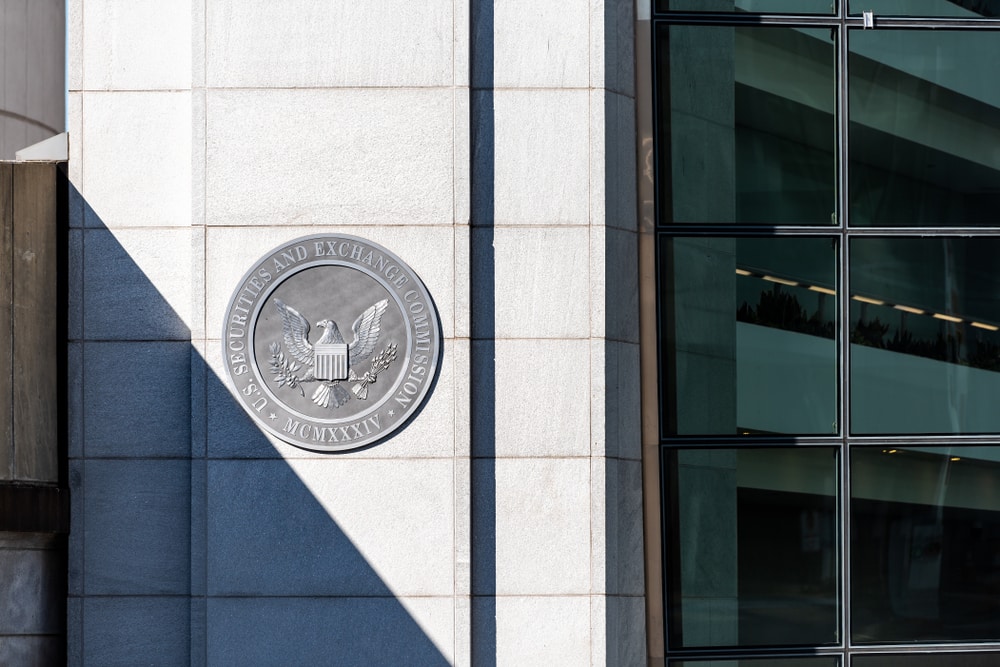Lawyer: Phase Two of SEC’s Enforcement is Slow, Painful Grind For Crypto

The crypto market is grinding upwards on Tuesday, with the bitcoin and ethereum prices leading the charge. | Source: Shutterstock
According to Kobre & Kim government enforcement defense and securities litigation attorney Jake Chervinsky, the second phase of the US Securities and Exchange Commission (SEC)’s enforcement on crypto is a painful and slow grind for the sector.
Earlier this week, the US SEC cracked down on Paragon and AirFox, two initial coin offering (ICO) projects that raised $12 million and $15 million respectively in two different areas of the crypto market.
The SEC is said to have targeted EtherDelta, Paragon, and AirFox as guidance settlements and to establish a precedent across the cryptocurrency sector, and is expected to clean up every major area of the ICO market in the coming months.
At the Investment Adviser Association conference in Washington, D.C., Stephanie Avakian, co-director of the SEC’s Enforcement Division, hinted that dozens of ICOs are being investigated by the SEC as of current.
Slow Grind Ahead
All three projects that reached settlements with the SEC over the past two weeks have paid relatively small penalties in the range of $250,000 to $300,000. Both Paragon and AirFox were ordered to pay $250,000 as a fine for issuing an unregistered security, despite the clear discrepancy between the amount of money raised by the two projects.
The SEC decided to impose an identical fine on both projects because the intent of the commission was to target major projects and establish a precedent for the industry. But, crucially, the SEC refrained from offering a clear guideline for tokens to be considered non-securities under existing regulations.
With every newly emerging industry, Chervinsky explained that the SEC tends to employ a strategy called guidance by enforcement and does not provide a clear set of rules to avoid being in legal conflict with projects that could result in a state court or a federal court solidifying the regulatory nature of the project or the market.
“This is a classic SEC strategy known as ‘guidance by enforcement.’ It can be deeply frustrating for an industry in need of a clear set of rules rather than a patchwork of orders. But regulators like it: it leaves them free to exercise their discretion. The SEC rarely wants to test uncertain legal theories in court. If they were to lose on a big issue–like whether tokens are securities–it could disrupt their enforcement strategy for the entire industry. The best way to avoid that result? Leave the rules vague and ambiguous.”
In its official announcement, the SEC emphasized that it encourages token issuers to cooperate with the SEC, doubling down on its neutral stance towards blockchain technology and willingness to allow the ICO market to continue operating as long as token issuers comply with local laws.
Securities Isn’t All
Phase two of crypto regulation enforcement could involve taxes, money laundering, sanctions, and many more areas that could create a more difficult and impractical ecosystem for cryptocurrency companies to operate in.
Over the past several months, only the SEC has engaged in settlements with companies to clean up the sector, but the Internal Revenue Service (IRS), Commodities and Futures Commission (CFTC), and other agencies have minimally been involved in the crypto market.
“If I’m right, ‘phase two’ isn’t much fun at all–it’s a slow, painful grind where the SEC cleans up the crypto space one settlement at a time. In a way, that’s the right approach. It really isn’t the SEC’s job to make the law–clarity really ought to come from Congress. And if you’re tired of hearing about regulation & enforcement, I regret to inform you this is only the start. The securities laws are just one piece of the crypto puzzle. We get to do this all over again with the laws on taxes, money laundering, sanctions, and more. Sorry,” Chervinsky said.
Images from Shutterstock
